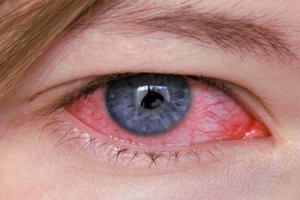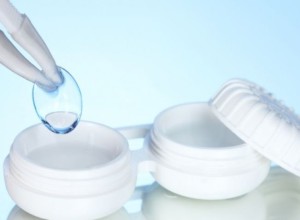Site sections
Editor's Choice:
- Available methods for rapidly increasing blood leukocytes
- Nail and skin fungus will not resist the coffee grounds
- Crocus furniture exhibition. Furniture exhibitions
- Owl tattoo on arm value
- The biggest members in the world
- Fractures of the phalanges of the foot photo
- What is “bad” and “good” cholesterol
- What to do if the skin around the nails dries
- The safest natural varnishes list
- Olive oil: is there any point in buying expensive varieties?
Advertising
| Itchy eyes what to do. The most common causes of the disease. Traditional methods of treatment. |
|
Normally, the eyes should not feel any discomfort. But sometimes it happens that they begin to itch. If this is an isolated case, it does not pose any danger. If itching in the eyes bothers often or constantly, other unpleasant symptoms appear, this is a reason to contact an ophthalmologist. It is better to diagnose any diseases of the visual apparatus and begin treatment in the early stages, before the deterioration of vision begins. The causes of itching in the eyes are many:
Almost every person lives ciliary mite. Usually it does not cause any discomfort. But with the weakening of immunity, he begins to actively reproduce. Then the eyes turn red and itch, especially the edges of the upper and lower eyelids, where eyelashes grow. From the eyes appear sticky discharge, constantly gluing eyelashes. The patient begins to experience irritation in daylight. Another reason for dry eyes is related to the lifestyle of a modern person. With a long stay in front of a computer monitor, dry eye syndrome develops. This is due to the fact that a person is forced to strain his eyes and as a result begins to blink a little. The mucous membrane is not moistened in time, why it begins to dry up. At first, you will simply feel discomfort, then itching will join, and you will want to constantly rub your eyes to get rid of it.
Often itchy eyes for those who wear contact lenses. This usually happens if the person wearing CL does not ignore the recommendations of the doctor and does not use a special solution for their treatment. If you do not change the contact pair after the expiry of the period of wearing or do not remove it at night in the case when it is not intended for constant wear, eyes irritated by protein deposits on the lenses. CL should be cleaned with a special solution, and the eyes - to rest. DiagnosticsTo find out why itchy eyes, you need to contact an ophthalmologist. He examines the organs of vision, diagnoses and prescribes treatment. Doing self-diagnosis is not the best option, but let's say it is, if you do not have the opportunity to visit a doctor. Let's look at the causes of itching in the eyes, combined with additional symptoms. It corners the eyesIf you feel that the eyes itch only in the inner corners, then we are talking about an inflammatory disease of the mucous membranes of the eyeball. It may be infectious, but sometimes due to allergies. To find out the causative agent of infection or to identify a substance that is allergen for you, you should visit an ophthalmologist or allergist.
It is scratched only in the morning.The cause of itching in the morning is usually associated with secretions from the eyes, which are produced at night. During sleep, they accumulate in the corners of the eye, and by morning they dry up. Particles are formed, which even with small sizes can cause severe itching.
This cause is not a disease. And getting rid of it is very simple. Enough every morning to devote enough time for facial hygiene. You can just wash yourself abundantly with clean water or take a morning shower. After it you will feel relief. If it does not occur, and the eyes itch every day more and more, consult an ophthalmologist. Itching goes well with a coldIf you have itchy eyes and runny nose at the same time, then you are most likely allergic. Substances to which the body has hypersensitivitysoaring in the air. They settle on the mucous membrane of the eyeball. You inhale them with each new portion of the air. Therefore, an allergic reaction develops not only in the eyes, but also in the nose. As a result, in addition to the itchiness in the eyes, you will notice increased tearing and watery discharge from the nose.
Itching during pregnancyDuring pregnancy, the female body enhances the response to any stimuli. And if earlier some substances did not cause harm, then when carrying a child they can cause an allergic reaction. But pregnancy is not a reason to put experiments on oneself. Many medications contraindicated in this period. Therefore, contact your doctor to find a safe treatment for your baby.
Itching and temperatureIf the eyes begin to itch, and the temperature rises, then you definitely picked up the infection. It is not desirable to treat it yourself. Consult your doctor to determine the type of pathogen and pick up drugs that can kill foreign microorganisms. And since your eyes itch, they also need local treatment. Your doctor will prescribe antimicrobial or anti-inflammatory drops. Treatment with traditional medicine methodsIt is necessary to begin treatment as soon as possible, but only after the cause of ocular itch has been clarified. Consider the main eye diseases from which they begin to itch, and how to treat them. Inflammation of the conjunctiva or corneaIn case of bacterial damage, local antibiotics are prescribed:
Dry eye syndromeIf your eyes are tired due to prolonged work at the computer, use moisturizing drops. They moisturize the mucosa, protecting it from irritation, and also contribute to the relaxation of the muscles of the visual organ. You will need drops that mimic a natural human tear. These include:
The same drops you may need when wearing contact lenses. AllergyIf the eyes begin to itch on contact with the allergen, first of all, you should try to get rid of contact with it. For this:
If you can not avoid contact with the allergen, you will need drops to reduce swelling and irritation:
Allergies will also useful tools containing hormones: Hydrocortisone and Dexamethasone in the form of drops or eye ointment. Ciliary MiteTreat demodekoz in the eyes with the help of demalan ointment. It is applied to the edges of the eyelids twice a day. But before applying, eyelids and eyelashes are cleaned of sticky secretions and dry crusts. To do this, use diluted in water alcohol tincture calendula or eucalyptus. Wash the eyes with a solution before applying the ointment twice: a second time 15 minutes after the first.
We treat itching folk remediesWhen itching, you can use the methods traditional medicine:
Be attentive to your health, and if an itchy eye occurs, visit an ophthalmologist. It is better to be safe, referring to a doctor with a trifling problem, than to miss the onset of a serious illness, which subsequently will lead to a deterioration in vision. And remember that itching eyes will stop only when you eliminate the cause of the itch. And this can be done only after a diagnosis and selection of therapeutic agents. In the modern world, the eyes are subjected to a huge load: a long stay at the computer at work and at home, watching television, doing "minor" work in dim lighting (embroidery, knitting, sewing, reading). And if you add regular sleep deprivation, the picture turns out and is not at all rosy. In this mode, the quality of vision can significantly deteriorate, so it is important to monitor any symptoms that may signal the development of a disease, and promptly undergo diagnosis and treatment if necessary. ____________________________ Why are itching eyes in the century. Itching under the eyes and in the corners of the eyesQuite often, people are faced with such an unpleasant situation when the eyelid is itchy. There can be several reasons:
To get rid of the symptom, you should, of course, remove the cause that caused its manifestation. When tired, you need a full sleep; in the case of lenses, rejecting them or switching to better ones; with tick or eye disease - appropriate treatment; in case of allergies - a change of cosmetics (it is desirable to completely abandon it, while the eyes itch). You may need treatment with antiallergic drugs, which your physician will prescribe. Those who spend a lot of time at the computer, can help special eye drops that prevent dry eyes (they are called "artificial tears"). If itching worries directly under the eyes, this is most likely a sign of an allergy. In this case, there may be such symptoms as: redness of the eyes, tearing, sneezing, runny nose, swelling of the face. In this case, it will help to alleviate the condition. antihistaminewho will appoint a doctor. If the eyes itch in the corners (external, internal) - there is a suspicion of conjunctivitis.Over time, additional symptoms develop: thick discharge from the eyes, cracks in the corners. With this problem, you must visit the clinic, otherwise you may encounter complications or infect loved ones. A child has itchy eyes: what to do?
If the child complains, or you yourself noticed that his eyes itch, try to understand what could be the cause.
Thus, if the baby has itchy eyes, the reasons may be very different. If you can’t determine them yourself, don’t delay visiting your doctor. Why eyes itch: eye diseases that cause this symptom
If eyes are scratched for a long time, the reasons may lie in the presence of a disease of the human visual system.
If you notice that itchy eyes after a busy day, try to take frequent breaks at work at the computer, use special glasses, get drops to normalize tears. If you have suspicions about the presence of a serious disease, do not delay the treatment, which can only appoint an ophthalmologist. What is the reason for itchy eyes in a child, videoPopular wisdom says: if the right eye itches - to look at your loved one or to joy, if the left eye means shedding tears. And when both are scratched, and even dryness or stinging in the eyes is added - this is an urgent reason to go to an ophthalmologist. What diseases can cause itching and discomfort in the eyes?The eyes itch for various reasons, the most common of which are diseases that are expressed in acute or chronic form. The most common diseases that provoke eye itch include:
You should also pay attention to exactly where itching appears (in the corners, in the eyelids, mucous along the eyelashes) - this will help to recognize the beginning disease. So, for example, if the corners of the eyes are itching - this is usually one of the signs of conjunctivitis, if itching occurs under the eyes - an allergy symptom, if the ciliary edge is itchy - blepharitis or barley may develop.
Causes of discomfort and itching in the eyes, not associated with diseasesOften, the reason for which itching appears in the conjunctival area of the eye is not necessarily caused by an incipient viral or infectious disease. Unpleasant sensations in the eyes can also cause:
Help in contact with a foreign bodyIf a foreign object gets into the eye, first of all, neutralize it. This can be done with a disposable cloth or wash with running water.
Wearing contact lensesThe banal operation of contact lenses can also cause discomfort in the eyes. Such a problem may occur due to poor-quality material from which the lenses are made, the ingress of an alien particle, such as the villi, between the lens and the eye. Often during prolonged wearing of contact lenses, the mucous membrane dries out, so the eyes may itch and appear a feeling of fatigue. To avoid this, you should regularly use specially designed eye drops. Use drops or eye makeupIf the eyes begin to itch while using the drops, you should immediately stop using them and seek the advice of the doctor who prescribed this medicine. This circumstance probably indicates the occurrence of allergy to one of the components of the drug. Itching and redness of the eyes can occur when using low-quality cosmetics or when allergic to one of its components. To stop discomfort, it is necessary to identify the remedy that caused the manifestation of a painful reaction and stop its use. The development of dry eye syndromeDry eye syndrome - a condition of insufficient moisture of the conjunctiva of the eye. This problem is a real scourge of modern times, it occurs when you are at a computer for a long time or watch TV or a tablet.
To prevent this condition, when working at a computer, it is necessary to periodically dig in the preparations of an artificial tear, do eye gymnastics, and often ventilate the room. Swimming in the pool or open waterFor many, itching and redness of the mucous membranes of the eye arise from contact with fresh or chlorinated water. Another possible cause from which itchy eyes after bathing in a pond is an allergic reaction to the flora and fauna living in it. What to do to avoid such unpleasant consequences? It is necessary to use goggles and masks while swimming, and also not to swim in polluted rivers and lakes, as this can lead not only to discomfort in the eye area, but also serious problems with the skin of the body. Long stay in the sun without sunglassesUltraviolet radiation is very dangerous for the eyes. In the summer, mirroring from the water surface, or in the winter, reflected from the sparkling snow, sun glare can cause eye burns. Therefore, to avoid this, you should not forget about sunglasses with a high degree of protection. Occlusion of the lacrimal ductBlockage of the lacrimal canal can lead to itching, burning and dryness of the eyes. To eliminate this difficulty, you can lightly press with a clean finger for a few seconds on a point located in the inner corners of the eyes. If this method did not help and the tear did not start to stand out, an urgent need to go to an ophthalmologist for help. What to do when itching?When the eye is scratched for a long time, it is necessary to try to determine the cause of this discomfort, find out what factor it is provoked, see what symptoms are present besides itching, is there any extraneous discharge from the eyes. If, in addition to scratching, there are additional signs of an incipient disease, it is necessary to immediately consult a specialist, do not take any treatment measures yourself, so as not to blur the picture of the disease. Even if you are sure that itching your eyes began because of one of the external factors listed above, you must stop contact with the pathogen, wash your face, rest your eyes and sign up for a consultation with a doctor. With increased dryness of the eye should be dripped picked up by an ophthalmologist drug artificial tears.
Prevention of itching in the eyesEye disease is easier to prevent than to treat. One of the methods of prevention of itching is gymnastics for the eyes, it helps relieve fatigue, relax the intraocular muscle. Choose an effective exercise for the eyes will help an ophthalmologist. To avoid itching in the eyes, and the development of dry eye syndrome, it is necessary to limit the pastime in front of the TV screen or computer monitor. Especially carefully need to control it in childhoodIt is not recommended to load children's eyes in this way for more than two hours a day. While you are at the computer, keep your distance, do not sit too close to the monitor, maintain correct posture, look at the monitor from top to bottom, if necessary, use moisturizing eye drops.
It should be remembered and to protect the eyes from irritation by external factors:
Take care of the beauty of the eyes and sight from the young, and then at least the right eye, even the left eye, if it combed, then certainly to the joy! Outward break through eyelids. And if you want to know the truth about a person Do not listen to the words - look into his eyes! ” But the eyes are not only the mirrors of the soul, but also an indicator of health. What can be seen in the eyes of a sick person? Redness, inflammation, tearing and itching - such symptoms are familiar to everyone. What happened to your eyes? In order to bring the “mirrors of the soul” in order, you should know why your eyes itch. Eye diseasesIf an unpleasant symptom suffers for a long time, and to the desire to comb the eye area are added inflammatory processes, causes lie in the pathological conditions of the visual system. Among the diseases that lead to unbearable itching in the orbital area are the most common: Belmo (or leikoma). The disease, a symptom of which is clouding of the cornea and the formation of a thick scar on it. When scarring, the cornea loses its natural transparency and does not transmit light. Over time, the affected area of the eye acquires a porcelain-white color. With the progression and further development of the disease, the thorn becomes yellowish. TO yellow color leads to the germination of blood vessels in the mucosa, which causes fatty degeneration and color change. The culprits leykoma become pathological changes that destroy the deep corneal layers:
Symptoms of the disease. A distinctive feature in the early stages of development of leucoma is a change in the color of the eye cornea. It gradually becomes porcelain-white, rough and slightly bulging. Patients complain of a decrease in the vision of the affected organ, there is a feeling of "fog" in front of the eyes. Gradually, the eyes dry, lose sensitivity to light, watery. Symptoms are accompanied by itching in the place where the thorn develops. Cataract. A disease in which the lens becomes cloudy. The eye lens is a transparent lens where all objects visible by people are focused. Pathological situation leads to a complete loss of vision in an elderly person. Most of the cases are people from 60 years old. Pathology affects 92% of the population over 80. Age is the main cause of the disease. In addition to old age, cataracts leads to:
Symptoms Pathology has several degrees of damage. Symptoms of the disease vary depending on the type of cataract. A sick person begins to catch specks, stripes, spherical figures before his eyes. There is a sensation of captivity before the eyes (the surrounding is seen as through misted glass). It becomes difficult for a person to read, write, see. At night, photosensitivity increases, vision drops. The affected eye itches because of the transformation of the lens. Over time, the black color of the pupil changes to whitish. Color perception changes - the patient does not perceive blue and violet hue. Glaucoma. The name of the pathology comes from the Greek language and means "light green." That is how the pupil of a sick person gleams. Most often, glaucoma develops in people older than 40-45 years. The disease occurs as an independent disease or becomes a symptom of the current disease (diabetes, atherosclerosis). A healthy eye has a steady pressure inside the eye. With glaucoma, the balance is disturbed, fluid accumulates in the eye organ, which leads to an increase in pressure. Vision decreases, the blood supply to the eye apparatus is disturbed, blindness becomes the final result of the disease. Symptoms Glaucoma is an insidious disease, sometimes pathology develops unnoticed. The painless destructive process lasts 4-5 years, and when a person realizes that there is a disorder with the eyes, the disease enters an irreversible stage and leads to blindness. Other forms of the disease occur with pain symptoms in the area of the temple and eyebrows, there is an itch of the affected eye. The patient observes the effect of halos around light sources. In this case, glaucoma makes itself felt seizures, in which there is nausea, deterioration of health and fever. Trachoma. Infectious eye disease of a chronic nature. The main culprits of pathology are chlamydia. They affect the cornea, conjunctiva and lead to the formation of scar tissue. The scar affects the area of cartilage of the upper eyelids. The disease leads to a complete loss of vision. Symptoms The disease develops within 1-2 weeks. The disease affects both eyes. On early stages alarms are a constant redness of the sclera. Conjunctiva is inflamed, irritated, eyes watering. Gradually formed scar tissue, leading to deformation (inversion) of the eyelids. Corneal clouding begins and persistent itching in the eye area. In the development of the pathological process, there are four stages:
Conjunctivitis. Some of the most common eye diseases (35% of clinical cases). Conjunctiva protects the eye from the penetration of sclera dust, dirt, germs. It protects against negative external factors. Due to its activity, the eye membrane has to deal with a variety of various external stimuli. The causes of the development of pathology are varied. Depending on the characteristics of the lesion depends on the type of disease:
Symptoms For all types of diseases there is a strong itching of the affected organ (there is a feeling that the eyes itch from the inside). A healthy conjunctiva is transparent, moist and smooth. In pathological situations, the shell becomes rough, scars form on it. Ocular mucous membranes become cloudy and redden, there is a profuse tearing, photophobia and a sensation of cutting and burning of the affected organ. It seems like the eyes are baked. Barley.Inflammatory disease of the eyelids purulent nature. The disease affects the follicle lashes, the sebaceous gland, located next door. The culprit of the disease becomes a bacterial infection (in 95% of cases the disease causes Staphylococcus aureus). The causes of pathology include:
Symptoms The disease is acute, the lesions rapidly swell and fester. Puffiness is thick, painful with pressure, accompanied by lacrimation, redness of the sclera and pronounced itching. Often the patient has signs of poisoning the body with toxins (fever, headache, swollen lymph nodes). After 3-4 days, a suppuration forms on the swelling, it opens up independently and removes pus, blood. In most cases, the abscess is not opened, and resolves in 2-3 days after treatment. Eye itch as a symptom of other diseasesThe desire to comb the eyes is manifested not only because of eye diseases. The occurrence of the painful symptom involved current disease. Most often itchy eye becomes a sign of the following ailments: Allergy. Frequent allergic manifestations are pain, burning and itching of the eye area. Eyes are very itchy after contact with allergens (pollen, hair of dogs, cats, dust). The use of poor-quality cosmetics, the long wearing of lenses leads to allergic reactions. Eye allergies has the following manifestations: Allergic conjunctivitis. With the development of pathology eyes itch because of inappropriate cosmetics, the use of external medications, long wearing lenses. In addition to itching, red spots appear around the sockets. Observed swelling of the eyelids and allergic rashes. Itching goes away with severe pain, burning and cutting. Atopic conjunctivitis. Chronic disease that manifests itself only by itching and cutting in the eyes upon contact with an allergen. No other symptoms noted. Patients complain about the sensation of a foreign object in the eye organ, a feeling that sand has been poured into the eyes. Pollinous conjunctivitis. For allergies of this nature is characterized by seasonality. Relapse and obvious manifestations of the disease occur in the summer and spring months. At this time, plants, their pollen actively bloom and cause manifestations of the disease (swelling and itching of the eyes, nose, throat). The disease provokes the development of bronchial asthma. Keratoconjunctivitis. It is noted that young men and teenagers suffer from this rare type of allergy during puberty. Allergic symptoms are seasonal with relapses in spring and summer. With the disease begins tearing, falling vision and photophobia. The eyes react with severe itching around the eyelids and the papilla grows along the outer edges of the cornea. Cold. In humans, the organs of the eyes and nose are connected by the lacrimal canaliculi. This anatomical feature makes the eye apparatus vulnerable to most colds infections. With a cold there is a burning sensation, cramps in the eyes. They start to water and itch. A frequent "accompanying" symptom is photophobia and a feeling of pressure on the eye. The eye muscles involuntarily contract. The causes of unpleasant symptoms are:
When the pathogenic microflora penetrates the mucosa of the nasopharynx, it is likely that the infection will continue. It affects the structures of the eye organ and causes similar pathologies in them. The situation is complicated if a bacterial infection joins with a cold (runny nose and sneezing). In such cases, the person develops frontal sinusitis. In addition to the itching of the eyes, the patient notes the following symptoms when joining a secondary infection:
And if photophobia, plentiful tearing and redness of the eyes join these signs, this condition indicates the development of inflammation of the conjunctiva and the appearance of viral conjunctivitis. Diabetes.Elevated blood sugar levels trigger the development of lens edema, which negatively affects the ability to see. In addition to falling vision, puffiness is accompanied by painful itching and burning in the eyes. Diabetics develop three types of pathological conditions with an eye organ:
Diabetic rhinopathy - a pathological change in the retina due to chronic damage to small blood vessels. The most severe complication of diabetes causes complete loss of vision. The following factors are involved in the development of a dangerous situation:
With the appearance of the disease, helminths penetrate into the inner layers of the skin under the eye, provoking the development of edema resembling furuncle. Developing, the worm causes a strong inflammatory reaction, which takes place with a strong itch in the affected area. To notice the worms that have settled in the eye organ can be traces that they leave:
Other causes leading to itchingSometimes the culprits of an unbearable desire to comb the eyes are causes that are independent of physical health. The culprit for itching is the man himself and the changes that occur in the body in certain situations. Unsuccessful trips to beauty salonsWhich of the girls does not dream of thick, beautiful eyelashes! Some ladies in pursuit of beauty go to the nearest beauty salon to build eyelashes. But, instead of an enchanting look, after eyelash extension, the eyes begin to itch and swell. Allergy becomes a very unpleasant surprise. An allergic reaction develops due to the individual susceptibility to the glue used in the procedure. The immune system perceives the chemical components of the drug as foreign and actively rejects it. This reaction is accompanied by:
Attention! If, after the eyelash extension procedure, the eyelids are swollen, the head aches and the area of the eyes is covered with a crust - immediately remove the eyelashes and go to the ophthalmologist. To independently remove the accumulated bundles, do not tug them! Together with artificial strands in this case natural eyelashes may fall out. Apply to the surface of the glue oil or children's fatty cream. After 3-4 minutes, massage the glue area a little and gently get rid of artificial eyelashes. Rinse the eyes with a decoction of chamomile and go for treatment. Do not use cosmetics before consulting an ophthalmologist, otherwise the condition may worsen. What causes allergies? For building masters apply two types of glue - black and transparent. According to observations, it is safer to use glue that does not have color - due to the lack of dye. But the material itself (artificial cilia) rarely causes allergies. Only in the case when the procedure was used artificial strands. Allergic reactions together with severe itching, swelling and redness of the eyes can also occur after lamination of the eyelashes. The lamination procedure extends your own cilia and saturates them with nutrients. But, only if a real professional worked on them.
If you still decide on the procedure, carefully study the composition of the components in the mixture (ask the master about this). Pay attention to the naturalness of the drugs used. And pay special attention to the choice of the master in the salon - you need a professional to manipulate the eyelashes. Substandard cosmeticsEyes may itch from makeup. An allergic reaction manifests itself in poor-quality decorative cosmetics (especially mascara and liquid eyeliner). Symptoms of allergies are:
Be careful in choosing cosmetics! The composition of base cosmetics includes irritating chemical compounds that can cause not only allergies, but also skin diseases. It is advisable to use products based on natural dyes or not to spare money for professional preparations (they go through all stages of clinical trials and inspections). Be sure to follow personal hygiene when using mascara or eyeliner! On brushes can settle demodex, causing intractable disease. If, after applying make-up, inflammation began, itching, swelling - carefully remove makeup, rinse your face with clean water and blot with a clean towel. Will help to bring your eyes in order drops Vizin and tincture of calendula or pharmaceutical chamomile. Medicinal decoction must be taken orally to relieve symptoms. To make a healing infusion, steam in a glass of boiling water 2-3 teaspoons of herbs. Take a drink of 200-250 ml daily. Itchy eyes after lensesContact lenses are a modern and safe method of vision correction. The lenses have firmly settled in the usual human life for 5-6 decades. But you should get used to them, in most cases, the person who first puts on the lens, is faced with discomfort, redness and itching in the eyes. This is a normal reaction of the body to a foreign object. To avoid trouble, follow these simple rules: Observe hygiene. To avoid an inflammatory reaction, wash your hands thoroughly before putting on lenses. After use, place the lenses in a special storage container, placing them in a solution. The solution and container should be changed every 3-4 months. And remember - for each lens a separate compartment, do not put them together! Pick cosmetics.Women wearing contact lenses will have to take care of choosing the appropriate cosmetics. Choose cosmetics, where there is a special tick that cosmetics is intended for those who wear lenses. Such agents are not allergic and will not cause. inflammatory reactions and itchy eyes. Do not overwhelm. Each brand of lenses has its limited life. There are funds daily, wearable 2 weeks and special for long wear (they have to be sterilized weekly). Do not use lenses for longer than expected (it is advisable to change them in advance). And know that you can not wear any lenses for more than 20 hours. Qualitative solution. For storage of lenses, purchase only such products, which are marked “Approved by the Association of Ophthalmologists”. Buy solutions should be only in the pharmacy chain, paying attention to the expiration date. If, despite the observance of all the rules, the lenses still cause lacrimation, itching and allergic manifestations, the body should be helped to get used to them. Perfectly cope with this task eye drops Avizor, Vizin, Holo-Komod, Vlink. But be sure to consult on this with an optometrist. Itchy eyes during pregnancy"Interesting position" alone can not cause allergic reactions and itching. When a pregnant woman scratches eyes intensely, the culprit should be sought in increasing the sensitivity of the pregnant organism to various stimuli. Future moms should be sensitive to self-treatment, do not use unfamiliar folk recipesmedication. The following situations occurring during pregnancy are implicated in itchy eyes: Hormonal adjustment. The body, nurturing the baby, is undergoing a global hormonal adjustment. Changes affect the work of the eye apparatus. When the hormone estrogen falls, the amount of fluid needed to function is reduced. The lack of tear fluid is manifested by redness, swelling and itching in the eyes. After birth, the condition is normalized. But situations can be complicated. Water retention causes deformation of the cornea (curvature or thickening). For this reason, ophthalmologists do not perform any operations (even simple ones) on the eye organ during pregnancy. Corneal changes cause a slight burning sensation and itching. Pathological situations. When the future mommy has problems with the eyes, this may indicate developing diseases:
For any changes in the functioning of the eye organ, be sure to consult an oculist. The doctor will help to restore the work of the eyes and develop the necessary treatment. Signs of eye itchFolk beliefs about the eyes are very tangled. They give conflicting information. Depending on the day of the week, when the eye was scratched, the person’s itch awaits the particular place, then happiness, sadness, luck and a pleasant meeting, or even serious losses with frustrations. To understand the predictions, clearly define the place of the verse, which and when it was the eye that itched. Itchy right eyeIn the Slavic land since ancient times believed right side body righteous and clean. And the signs about the right side brought good news. What does it mean to scratch your right eye? And where is it scratched?
If it hurts the right eye early in the morning near the bridge of the nose - expect that fate before the onset of twilight will give a chance to successfully resolve a long and difficult question. The course of life will change for the better. Internal changes are also possible - a person will change his positions, attitudes, opinions about the familiar. Itching of the left eyeThe left side of the body rarely indulges with good and favorable prophecies. The ancient Greeks believed that a girl who scratches her left eye, an anemone, a frivolous creature and should not take her into a mate. But the man in this case became a model of an exemplary family man. According to Russian traditions:
About the left eye of the people folded little faith. But there is one interesting sign: scratch the quickly itchy eye with the index finger right hand and clap your palms in front of your nose. So a person will catch a big luck or a big win. If your left eye suddenly started itching early in the morning - get ready for unpleasant news. But in the case when it itches at a business meeting and negotiations, this means that the transaction will become successful and profitable. Itchy eyes by day of weekTo determine the exact forecast prediction about eye sverbezh, contact your calendar for help. What does itchy eyes mean?
Why are both eyes scratched at once? Prediction gives a disappointing forecast. Expect disappointment, even betrayal by people whom you trust immensely. Such a sign carries a warning, with diligence and caution troubles will bypass. How to relieve itchingWhat to do with painful syndrome? A qualified ophthalmologist is able to find out the reason why the eyes itch and determine what to treat. Attempting to independently establish the diagnosis and prescribe treatment on its own leads to disastrous results and sad consequences. Before using traditional medicine prescriptions or eye drops, you should always consult with an optometrist. What drops to buyPuffiness, redness and itching of the eyes causes the activity of histamine - a powerful irritant effect of the release immune system. To relieve allergic reactions, ophthalmologists recommend:
Drops for relieving itchy eyes do not belong to therapeutic methods, they relieve and relieve only the symptoms and are good only in mild cases. The constant use of such drugs is addictive, which worsens the condition of the body and the progression of the problem. Drops due to rapid absorption in the eye vessels, enter the bloodstream. Due to this, the chemical components of the droplets are exposed and adjacent internal organs. Drops act on the vessels, constricting them. If you use the funds for a long time, the elasticity of the vascular walls falls, and the redness of the eyes will remain a human companion for a long time (even after discontinuation of the drug). But not only about the minuses can be told by talking about antipruritic drops. Their benefits include:
Unlike antiallergic drugs, eye antipruritic drops do not adversely affect the eyelid skin. Rules of application. Drugs stored in a cool place (suitable refrigerator). But it is better not to bury cold drops in the eyes, but give time to warm up. Cold liquid causes burning sensation. If you wear contact lenses, they should be worn a quarter of an hour after applying the droplets. During this time, the tool will have time to evenly distributed on the ocular surface and will not cause additional discomfort. In the case when after using a burning sensation appears and the eyes become inflamed, you should immediately stop using the droplets. Rinse eyes. If the painful syndrome does not disappear after an hour, contact an ophthalmologist for help. Folk remedies for itchy eyesStopping redness, remove an itchy, unpleasant symptom will help means at hand. In front of you best recipes to relieve itching in the eyes - choose:
If the baby has itchy eyes, make sure that the baby does not injure them or comb them. To do this, wear anti-scratch crumbs. Treat the eyes with a cotton pad dipped in a solution of baking soda, and be sure to consult a pediatrician. But, eye drops, folk remedies may not be necessary if you do not bring the situation to a fatal outcome. Should know preventive measures. Prevention, how to prevent itchingTo prevent the development of unpleasant, painful conditions, follow the simple rules:
And remember, treating eye itch is always more difficult and painful than sticking to the simplest preventive measures. If even a minor unpleasant symptom occurs, immediately contact an optometrist - the delay is fraught with visual impairment and the development of pathological problems. Health to your eyes! In the modern world, our eyes are exposed to increased loads: we sit for hours at the computer monitors, dye our eyelids and eyelashes daily cosmetics, and as a rest we watch TV or read the news on the tablet. Not surprisingly, almost every second and one of the most common complaints is that itching, dryness, or cramps in the eyes appear. Experts advise not to postpone the visit to an optometrist, if your eyes are itching, because the cause of inconvenience can be both a trivial overwork and a serious eye disease. Itchy eyes - reasonsThere are a lot of reasons why eyes can begin to itch: from infectious diseases to dryness of the cornea. First of all, you need to decide what itches - the eyelids, the corners of the eyes, the eyeballs themselves or all together, and assess the general condition of the organs of vision: the presence of discharge from the eyes, redness of proteins, eyelids, pain and pain in the eyes or visual impairment. The most common causes of itchy eyes are: 1. Conjunctivitis - in this disease, the corners of the eyes itch or the entire eyeball as a whole. Viral or bacterial infection, as well as allergies, can cause inflammation of the cornea and the appearance of mucous or purulent discharge. Distinguishing conjunctivitis from other diseases of the organs of vision is fairly easy: the cornea reddens, the corners of the eyes itch, the eyelids swell and become inflamed, they stick together after sleep, and pus or mucous secretions accumulate in the corners of the eyes and on the eyelids, which prevent eyes from opening normally after sleep. By itself, the disease is safe enough, but if left untreated, prolonged inflammation can cause damage to the cornea and the inner lining of the eye, and even lead to blindness; 2. Allergic reactions - most often itchy eyes because of the ingress of any substance that caused allergic reaction or corneal irritation. This may be poor-quality cosmetics, household chemicals, particles of plant pollen getting into the eyes, or a manifestation of a general allergy caused by the ingestion of an allergen in the body (for example, eating honey, fruit, and other foods). When allergies itchy eyelids and the entire eyeball, characterized by redness and the appearance of itching in both eyes, excessive tearing, severe swelling of the eyelids - the eyes are swollen, shrinking and sometimes even difficult to open. Other manifestations of allergies are also possible - rash, cough, runny nose, and so on; 3. Colds and viral diseases - many infectious diseases upper respiratory tract begins with the fact that the eyes turn red and itch, at the same time or a little later, other symptoms of the disease appear: headache, fever, cough, runny nose and other symptoms; 4. External stimuli - eyes may itch due to irritation of the cornea with contact lenses, dust particles in the eyes, household chemicals, some other substances (for example, when working with animal hair, sand, paint particles, etc.) with excessively dry air in injury to the cornea by any object or other similar cause. In this case, the unpleasant symptom will appear in certain conditions and disappear after the disappearance of the stimulus; 5. Dry eyes - one of the most common problems of computer scientists and people of other professions who are forced to constantly strain their eyes. Because of this, the person blinks less often, the production of tear fluid is disturbed, it becomes too small, the cornea dries out and the person feels a burning sensation and pain in the eyes, itches, and, subsequently, conjunctivitis or another disease may develop; 6. Barley - severe itching in the corners of the eye may be associated with inflammation of the eyelash bulb or the sebaceous gland of the eyelid. In this case, a slight redness, swelling and an abscess appear on the eyelid; 7. Blepharitis - inflammation of the eyelids, redness and itching accompanied by the appearance of crusts at the edges of the eyelids, as well as loss of eyelashes; 8. Other diseases of the organs of vision - less often the eyes may itch because of such dangerous diseaseslike trachoma, glaucoma, cataract or thorn. All these diseases develop gradually and along with itching, redness and unpleasant sensations in the eye area, the patient has a deterioration in visual acuity, ambiguity of surrounding objects, a change in color perception. Itchy eyes - what to doIf your eyes itch, you can’t do without visiting an oculist, a qualified specialist will help you to find out exactly the cause of the unpleasant symptom and give specific recommendations on how to cope with this or that disease.
Do not forget about the measures of prevention of eye diseases: use only high-quality cosmetics, wear carefully selected glasses and contact lenses, as well as do special exercises for the eyes and not load them more than necessary. |
| Read: |
|---|
New
- What you need for acrylic powder
- What does owl mascot mean
- Analyzes for pancreatitis: what research should be done and what indicators show
- Owl - a talisman to attract money and good luck
- What bird screams at night with a kitten's voice?
- Cholesterol and stress
- Manicure at home
- Effective facial
- What is a man after a broken leg?
- The trees and shrubs of the park survived the winter well




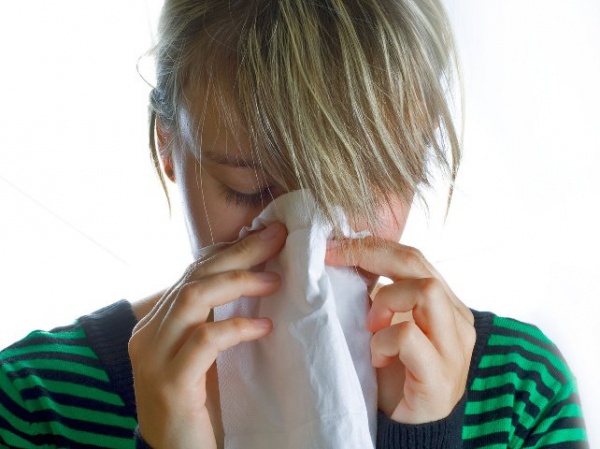

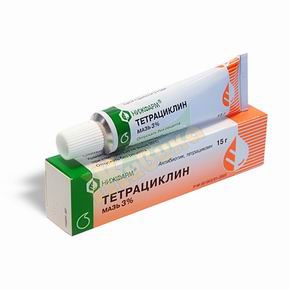
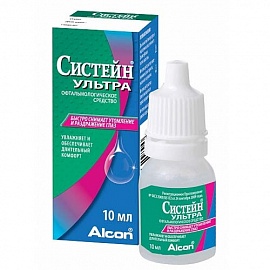
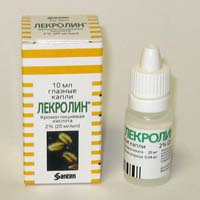

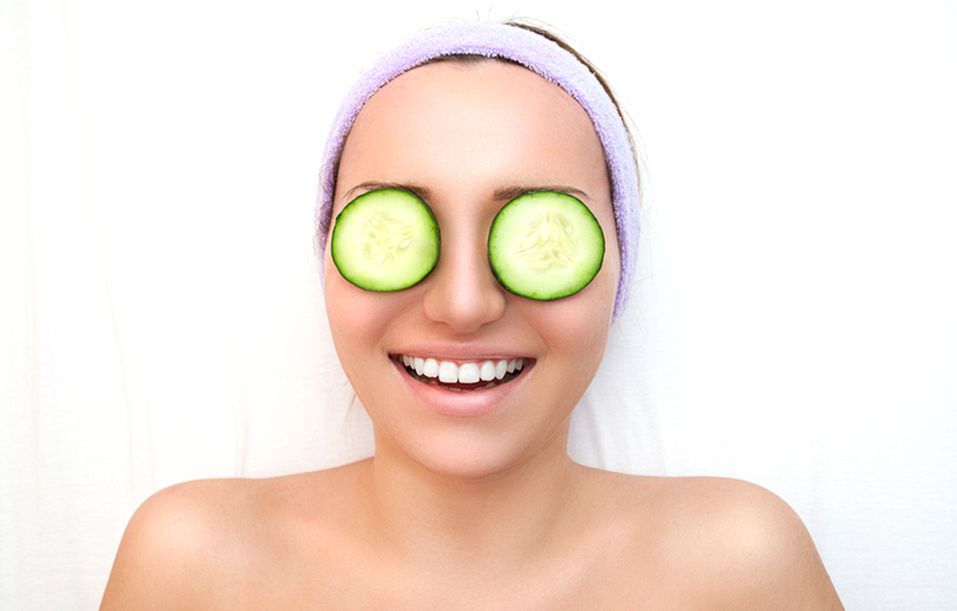

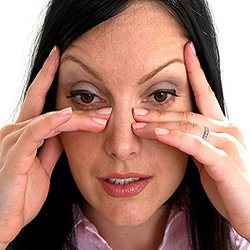
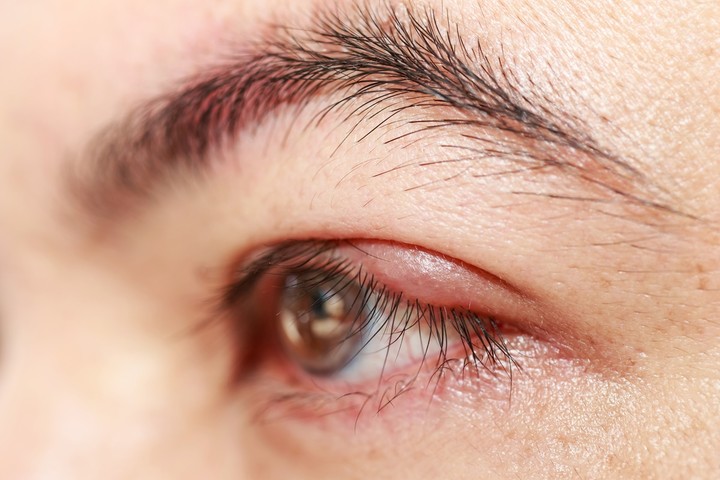 In any case, do not get involved in self-treatment. In order not to aggravate the situation and not to lubricate the symptoms of the disease, you should quickly contact an ophthalmologist. The doctor will carry out a thorough examination, take smears from the eyes and, after the results of the tests, prescribe a treatment suitable for the ailment.
In any case, do not get involved in self-treatment. In order not to aggravate the situation and not to lubricate the symptoms of the disease, you should quickly contact an ophthalmologist. The doctor will carry out a thorough examination, take smears from the eyes and, after the results of the tests, prescribe a treatment suitable for the ailment. If a particle that gets into the eye is small, it is enough to close the eyelid and gently move it, holding the eyelashes, left-right. In this case, the foreign body is usually washed away by the tear fluid and remains in the corners of the eyes, without causing further discomfort.
If a particle that gets into the eye is small, it is enough to close the eyelid and gently move it, holding the eyelashes, left-right. In this case, the foreign body is usually washed away by the tear fluid and remains in the corners of the eyes, without causing further discomfort. Why are my eyes itching in these cases? Due to the high voltage, the number of blinks is reduced, the eye is not often wetted with a tear, and there is a lack of moisture in the surface of the cornea and conjunctiva. Manifestations of this syndrome are the feeling of sand in the eyes, burning and stinging, dry eyes, and increased fatigue.
Why are my eyes itching in these cases? Due to the high voltage, the number of blinks is reduced, the eye is not often wetted with a tear, and there is a lack of moisture in the surface of the cornea and conjunctiva. Manifestations of this syndrome are the feeling of sand in the eyes, burning and stinging, dry eyes, and increased fatigue.